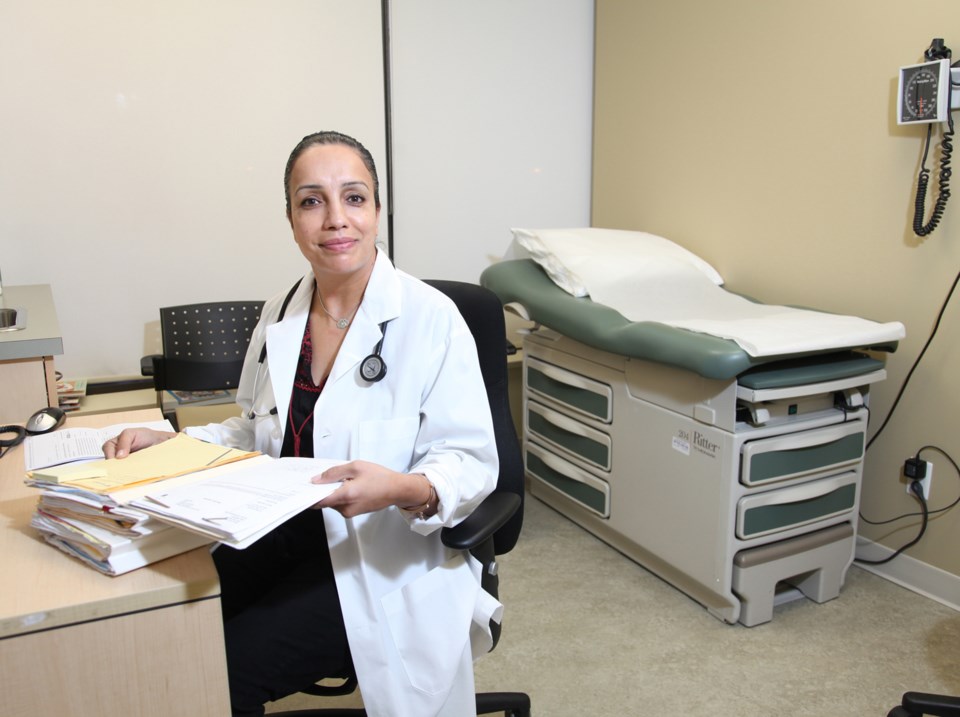While the focus has been on the dire need for family doctors in Burnaby, a quiet rising tide of nurse practitioners providing care is happening behind the scenes.
In Burnaby, there are a total of 11 nurse practitioners working in the city, and three of whom work at Fraser Health Authority facilities - two work at a clinic, and another works at Burnaby Hospital in primary health.
Fraser Health is applying for more positions to fill across the region, but it's unknown if Burnaby will get any more to keep up with the need.
Despite this growing phenomenon in a cash-strapped health-care system, not many people are aware what role the nurse practitioner has to play in it, according to Ranjit Lehal, primary care nurse practitioner at Burnaby's New Canadian Clinic.
"We've often been compared to physicians, and it's not about comparisons," she said. "I think who provides health care is multiple clinicians. You've got your OTs, your PTs, social workers, family physicians, specialists, and nurse practitioners are just another essential part of the health-care team."
Lehal has lived in Burnaby for most of her life. She's worked as a nurse for 16 years and has been a nurse practitioner for the past seven. When she's asked what she does for a living, she describes it as providing primary care by being able to diagnose conditions, develop a plan to address the condition and providing education.
"Although we've been a part of the system the last six to 10 years, we've definitely had some hiccups along the way and it's slow to move," she noted. "We're at a place now where our numbers are growing and we want community members to learn about what nurse practitioners do."
Lehal says another role the nurse practitioner plays is providing access for patients to a healthier lifestyle.
"Really, it's about improved access, being in a position where you can provide care and also provide education, provide support and resource through a well-rounded, comprehensive way," she added. "I think, ultimately, it helps to improve outcomes."
Lehal is also involved with various community groups, and is heavily involved in the campaign to make more room for nurse practitioners in the local health-care system.
"It's about outreach to the communities, as well," she said.
One of the challenges nurse practitioners face in a time of their continued growth in communities is having the funding. Due to the nature of how they're employed, they are only found within Fraser Health Authority facilities either providing primary health care, or in a cardiac clinic, pain management clinic or mental health clinic.
"Funding is always a challenge," Lehal said. "We need sustainable funding models in a time when we don't have those."
Lehal says she remembers a time when there were two nurse practitioners working in mental health in the area of primary care, as well.
"It's having permission to be allowed into the most intimate parts of people's lives, which is an incredible privilege,to potentially help make some impact, and that is a pretty amazing thing to be able to do," she added.
Kimberley Reid is another nurse practitioner, and she heads the Global Family Care Clinic that is part of the New Canadian Clinic in South Burnaby. Her patients are referred from various local community groups who need help navigating the health-care system.
"I think it used to be that nurse practitioner jobs were hard to come by," she told the NOW. "So now, with the NP for B.C. positions that have come up, then there's a lot more positions now. People have more of a choice of where they can work. They're really wanting to work somewhere that's a supportive environment."
Reid says nurse practitioners across the region meet once a month to address issues and strategize for the future.
"Maybe right now, because most of us are paid salary, we can sometimes have a little bit more time to spend with marginalized and special populations that need a little bit more time," she said. "That gives us the ability to sometimes deal with things a little more holistically. Being able to deal with some of the social issues and more of the mental health issues, I think it's a service added that we're able to provide."
Brenda Booy is Fraser Health's executive director of professional practice, allied health and chief nursing officer, and she oversees the nurse practitioners in the whole region.
"We are definitely looking for more," she said. "The value of the nurse practitioner to the health-care system is something that has been recognized at all levels."
There are more than 50 nurse practitioners working for Fraser Health in the region, which is quite a leap from just five years ago. In 2007, there were only 20 nurse practitioners working for the Fraser Health Authority. New Westminster has 12, and many are based at Royal Columbian Hospital serving the region. Surrey has 15 who also serve the region at large.
In B.C., there are 276 active nurse practitioners across the board.
"I'm really proud that we've been able to move forward with the role," Booy told the NOW. "I see it as helping to meet the needs of the population."
Booy said the health authority has applied to the province to fund nine more nurse practitioners in the region.
"They promote holistic and wellness care," she added. "They provide ... a lot of teaching. They do a lot of proactive help with chronic care management."
For more about nurse practitioners and where to find them, visit www.bcnpa.org or www.healthlinkbc.ca.



